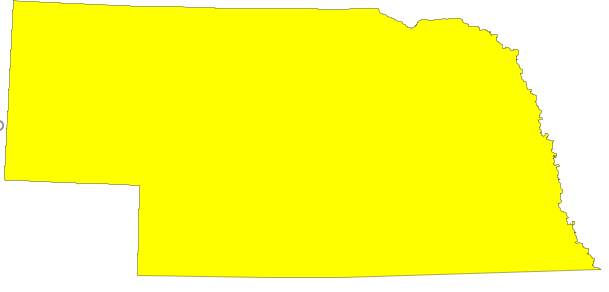The Honorable John Murante
Room #1423
P.O. Box 94604
Lincoln, NE 68509
Re: Constitutional and Practical Issues with Legislative Bill 252
Dear Chairperson Murante and Members of the Senate Government, Military and Veterans Affairs Committee:
On behalf of the Center for Competitive Politics, I am writing you today to respectfully submit the following comments regarding the constitutional and practical impact of the provisions contained in Legislative Bill 252,[1] which proposes amendments to Nebraska’s campaign finance laws.
The Center for Competitive Politics is a nonpartisan, nonprofit § 501(c)(3) organization that promotes and protects the First Amendment political rights of speech, assembly, and petition. It was founded in 2005 by Bradley A. Smith, a former Chairman of the Federal Election Commission. In addition to scholarly and educational work, the Center is actively involved in targeted litigation against unconstitutional laws at both the state and federal levels. Just this past year, we secured judgments in federal court that struck down laws in the states of Colorado and Utah for violating the First Amendment. We are also currently involved in litigation in California, Missouri, and against the federal government.
If Legislative Bill 252 becomes law as written, there is a high likelihood that the law will be found unconstitutional if challenged in court. Any potential legal action will cost the state a great deal of money defending the case, and will distract the Attorney General’s office from meritorious legal work. Additionally, it is probable that the state will be forced by the courts to award legal fees to successful plaintiffs. Legal fee awards are often expensive, and can cost governments well over one hundred thousand dollars.
Various sections of this measure are unconstitutionally broad. As drafted, Legislative Bill 252 will regulate an expansive amount of speech, including presumably books, websites, text messages, and e-mails. The bill’s disparate treatment of electioneering communication reporting requirements based on the identity of the speaker flouts Supreme Court precedent and is likely unconstitutional. The same provisions are drafted in such a way as to impose onerous burdens on individuals and small organizations. Furthermore, the $250 threshold for triggering electioneering communication reporting and an overly burdensome 48-hour reporting requirement will further chill the speech of those speakers that attempt to comply with this overbroad measure.
I. L.B. 252 unconstitutionally limits the ability of corporations and unions to make independent expenditures or electioneering communications, including nonprofit corporations.
L.B. 252 amends Section 49-1469 of the Revised Statutes Cumulative Supplement of Nebraska to incorporate the new definition of “electioneering communication.” Section 49-1469, Subsection (1)(d) is amended to read “[a] corporation, labor organization, industry, trade, or professional association, limited liability company, or limited liability partnership, which is organized under the laws of the State of Nebraska or doing business in this state and which is not a committee, may… make an electioneering communication.” Subsection 3 requires that, “[a]ny entity specified in subsection (1) of this section may not receive contributions unless it establishes and administers a separate segregated political fund…”
Such a requirement for the funding of electioneering communications is unconstitutional under Citizens United. In that case, the Supreme Court flatly rejected the argument that communications made with only separate segregated funds (in that case, corporate PACs) are equivalent to funds from an organization’s general treasury. The Court held that “[e]ven if a PAC could somehow allow a corporation to speak – and [as a PAC is a separate legal entity] it does not – the option to form PACs does not alleviate the First Amendment problems…”[2] In 2012, the U.S. Court of Appeals for the Eighth Circuit, a court whose precedent would control a federal challenge to Nebraska law, struck down a law that tried to force independent speakers to create a separate legal entity.[3] Contrary to Citizens United and on-point Eighth Circuit precedent, L.B. 252 would require organizations wishing to make electioneering communications to fund that speech only from segregated accounts. The burdens of maintaining such accounts – including the enormous effort required to validate potentially tiny contributions passing innocently through multiple organizations – are likely to be similar to those imposed upon PACs and held unconstitutional in Citizens United.
II. Perversely, L.B. 252 imposes more severe reporting requirements on natural people and non-incorporated groups than on large corporations.
L.B. 252 creates a two-track reporting regime for those making “electioneering communications.” Newly-created Section 6, Subsection 1 requires that “[a]ny person, other than a committee, who makes an electioneering communication in an amount of more than two hundred fifty dollars shall file a report of the electioneering communication, within two days, with the [Nebraska Accountability and Disclosure C]ommission.” Conversely, Section 49-1469, Subsection (1)(d) of the Revised Statutes Cumulative Supplement of Nebraska, as amended, allows “[a] corporation, labor organization, industry, trade, or professional association, limited liability company, or limited liability partnership” to “make an electioneering communication.” The measure further provides under this Section that “[a]ny such entity shall not be required to file reports of independent expenditures or electioneering communications pursuant to section 49-1467 or section 6 of this act.”[4]
Taken together, these sections have the bizarre effect of levying stricter reporting requirements on natural persons and non-incorporated groups than on incorporated entities. For example, an individual who wants to put up one $500 billboard that mentions the name of a candidate in a specified window prior to an election must file a report within two days of the billboard’s erection detailing: (1) the date the billboard will run; (2) what the billboard says; (3) the cost of the billboard; (4) the name and address of anyone who received funds for the billboard; (5) the name and address of the individual filing the report; and (6) the name, address, occupation, employer, and principal place of business of every contributor who gave donations over $250 for the billboard.[5] A union, however, who wanted to erect 500 identical billboards across the state of Nebraska is required only to file a report ten days after the end of the month in which the billboards began to appear, stating “[t]he nature, date, and value of the electioneering communication and the name of the candidate identified in the electioneering communication.”[6]
The end result, perversely, is that individuals and those with less intricate knowledge of the law and those lacking the resources required to comply with the measure will be forced to meet a higher reporting burden than many larger, more sophisticated organizations.
III. The legislation’s “electioneering communication” definition is stunningly broad, unworkable, and highly susceptible to legal challenge.
Equally as troubling, the bill’s over-inclusive “electioneering communication” definition will undoubtedly cause L.B. 252 to sweep far more broadly than is constitutionally appropriate.
Section 3 of the bill defines an “electioneering communication” as “any communication” referring to a clearly identified candidate and distributed within thirty days of any election that is “directed to the electorate of the office sought by the clearly identified candidate.”
The legislation does not require that a communication include an appeal to vote before it can be subject to regulation and disclosure rules. Electioneering communication provisions, such as those at the federal level, have been upheld in some circumstances, but generally only as applies to broadcast communications, such as television and radio ads. The McConnell ruling also upheld such a provision only after an enormous volume of fact finding by Congress.
L.B. 252’s extension of electioneering communication language to “any communication,” a phrase that presumably includes newspapers, periodicals, books, and leaflets as well as phone calls, billboards, e-mails, text messages, and Facebook messages, without any evidence that such communications pose a risk of corruption, would put Nebraska on dangerous constitutional ground.
For example, if a corporation funded a book, which incidentally named a candidate for office, that corporation could find itself subject to Nebraska’s electioneering communications laws if the book were published or distributed within the 30-day pre-election window. This could conceivably force major publishers such as Penguin Books, Simon & Schuster, or McGraw-Hill to file electioneering communications reports.
Although forcing book publishers to be wary of when they print and distribute books is in and of itself an obvious constitutional harm, Nebraska’s statute applies to any election, including presumably special elections – which are, by their nature, usually unplanned. Books that discuss the workings of Nebraska government, or even mention the wrong state senator, could be accidentally regulated under the law.
Worse still, the definition likely would cover e-mail and text messaging communications. Would this provision cover messages sent via electronic communication through Twitter or Snapchat that name a candidate? How does this provision affect messages mentioning a candidate on a public Facebook event page hosted by a group advertising an upcoming political gathering within a senator’s district? By regulating “any communication” that is “publicly distributed,” the bill could be applied to any of these communications. This stunningly broad dragnet will inevitably chill speech by leaving would-be speakers in the dark concerning the statute’s application.
In short, nearly any mention of a candidate in a covered communication may be regulated under the legislation. This excessively far-reaching definition would even appear to cover listings of votes cast by lawmakers if distributed to the public by organizations during periods that would be regulated by the bill. Such provisions will act to silence many speakers during the electioneering communication period and deprive voters of vitally important nonpartisan information.
On a positive note, L.B. 252 exempts from the definition of electioneering communications “[a] communication while the Legislature is in session about specifically named pending legislation.”[7] The Center commends the Legislature for this apparent attempt to exempt genuine issue speech from Nebraska’s electioneering communications regime. Indeed, this carve-out recognizes that legislation is often about issues, and speech about issues is undoubtedly protected by the First Amendment. Sitting legislators propose, discuss, and vote on legislation. Thus, debate about issues being considered by the Legislature necessitates the mention of those legislators.
However, we recommend that this exemption apply to all discussion of specifically named legislation, regardless of whether the Legislature is in session at any given moment. A group seeking to influence policy would want all candidates in a race to endorse its position on legislation, which may not come up for a vote until after a new Legislature or governor is sworn in after an election.
In addition, unlike the federal electioneering communications provisions, there is no objective way for a speaker to determine whether a communication “[i]s directed to the electorate of the office sought” by a candidate. The federal electioneering communications statute requires the Federal Communications Commission to establish and maintain an online electioneering communications database,[8] so that speakers can know whether a given communication can be heard by 50,000 or more persons in a state or district. This proposal provides no such directive to any state agency, nor is there any objective way to determine whether a specific communication is “directed” to a particular electorate. Since online communications also appear to be covered by the new “electioneering communications” definition, and online communications, by their nature, can be viewed by anyone with an internet connection, it is arguable that any online communication that mentions a Nebraska candidate could be covered under this bill.
One of the reasons why the federal electioneering communications statute has survived constitutional review is because it narrowly regulates a specific type of ad: broadcast communications.[9] The same analysis would plainly not extend to a statute that seeks to regulate books, e-mails, text messages, or Facebook posts released shortly before a state election.
Unlike its federal analogue,[10] L.B. 252 has no apparent de minimis limitation upon the audience that makes something an electioneering communication. Even reaching one person counts. Yet the United States Supreme Court has specifically protected hearty souls who pass out handbills of their own accord (as opposed to being funded by a formal campaign) from disclosure.[11]
IV. The legislation’s threshold for registering electioneering communications is unreasonably low and may lead to overbroad and arbitrary enforcement of the statute.
L.B. 252 requires that “[a]ny person, other than a committee, who makes an electioneering communication in an amount of more than two hundred fifty dollars shall file a report of the electioneering communication.”[12]
If enacted, this $250 threshold for reporting electioneering communications would be one of the lowest in the country, for states with such statutes. Such a remarkably low amount of spending, combined with the overbroad definition of electioneering communication described previously, would lead to almost any mention of a candidate being potentially considered an electioneering communication, if done in close proximity to an election. If a civic-minded citizen, on her own initiative, prints a brochure with a list of candidates appearing on the ballot, and the printing costs exceed $250, then under L.B. 252, that individual would be required to register and report their brochure as an electioneering communication. The same is true for a blogger who, in urging others to get out to vote, lists local candidates on his website and spends more than $250 on webhosting, or even an artist who sketches state senators leaving the Capitol if he spends more than $250 on paint supplies.
Such a low reporting threshold will necessarily dictate that the number of inadvertent violations of L.B. 252 will far exceed the capacity of the Nebraska Accountability and Disclosure Commission to enforce the statute. This is a recipe for selective enforcement. Selective enforcement through expansive regulatory power has, in other states and nationally, enabled politicians and bureaucrats to harass, intimidate, and persecute their political opponents in order to silence those with which they disagree. Nebraska would be unwise to follow this dangerous trend.
V. The two-day reporting requirement for electioneering communications will severely burden less sophisticated speakers, and will increase the likelihood of inaccurate disclosure reports.
The statute requires individuals and less-formalized organizations that engage in electioneering communications to fill out reports within just 48 hours of triggering the statute.[13] For less sophisticated speakers, who are not used to complying with campaign finance laws – and therefore have not registered with the Nebraska Accountability and Disclosure Commission – aggregating records, verifying donor information, and filing for the first time will inevitably be a difficult endeavor. Lengthening the reporting time to involve less immediate disclosure will shield these less sophisticated actors from inadvertently filing incorrect reports, likely in an endeavor to comply with the burdensome deadline, or from incurring fines for late or inaccurate filing.
* * *
Thank you for allowing me to submit comments on Legislative Bill 252. I hope you find this information helpful. Should you have any further questions regarding these issues or any other campaign finance proposals, please do not hesitate to contact me at (703) 894-6835 or by e-mail at mnese@campaignfreedom.org.
Respectfully,
Matt Nese
Director of External Relations
Center for Competitive Politics
https://www.ifs.org/wp-content/uploads/2017/05/2017-03-02_Senate-Government-Committee-Comments_NE_LB-252_EC-Reporting.pdf
[1] Change independent expenditure reporting requirements and require electioneering reporting, L.B. 252, 105th Leg., 1st Sess. (Neb. 2017) (as introduced). (“L.B. 252”).
[2] Citizens United v. Fed. Election Comm’n, 558 U.S. 310, 337 (2010).
[3] Minn. Citizens Concerned for Life, Inc. v. Swanson, 692 F.3d 864 (2012) (en banc).
[4] L.B. 252 § 7(2).
[5] L.B. 252 § 6(2)(a)-(f).
[6] L.B. 252 § 7(2)(b).
[7] L.B. 252 § 3(2)(d).
[8] “The Electioneering Communications Database,” Federal Communications Commission. Retrieved on March 1, 2017. Available at: http://apps.fcc.gov/ecd/ (February 28, 2016).
[9] McConnell v. Fed. Election Comm’n, 540 U.S. 93, 194 (2003) (“The term ‘electioneering communication’ applies only…to a broadcast…”) (emphasis supplied).
[10] As discussed in part, federal electioneering communications are defined as “any broadcast, cable, or satellite communication” that “refers to a clearly identified candidate for Federal office” and is made either within 60 days of a general election or 30 days before a primary election. 52 U.S.C. § 30104(f)(3)(A)(i)(I)-(II). As noted, the ad must also be “targeted to the relevant electorate,” 52 U.S.C. § 30104(f)(3)(A)(i)(III), meaning in practice that it “can be received by 50,000 or more persons” in the relevant jurisdiction. 52 U.S.C. § 30104(f)(3)(C).
[11] Talley v. Calif., 362 U.S. 60 (1960) (striking down a disclosure statute regulating genuine issue speech); McIntyre v. Ohio Elections Comm’n, 514 U.S. 334 (1995) (striking down a disclosure statute regulating small-scale issue advocacy); see also Buckley v. Valeo, 424 U.S. at 14 (“Discussion of public issues…[is] integral to the operation of the system of government established by our Constitution.”).
[12] L.B. 252 § 6(1).
[13] L.B. 252 § 6(1).














